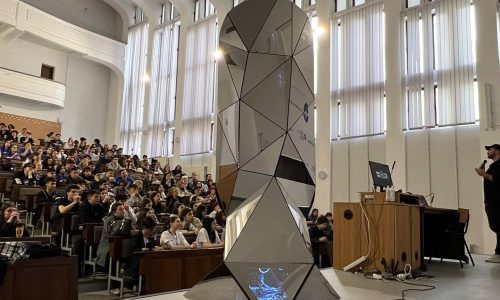This is a guest post by Alex Karichensky, a CEO at global consulting and custom software development company Digicode Europe. As a seasoned tech entrepreneur, Karichensky shares his vision of innovations resulting from generative AI integration into all business areas to increase their success and profitability.
Rapid growth of Generative AI
Generative AI is a technological marvel responsible for creating content, data, and solutions autonomously. It has led to breakthroughs in natural language development, image synthesis, and autonomous content creation using deep learning algorithms in the form of neural networks. Following ChatGPT’s release in November 2022, companies are vying for its value as it has been widely reported in the media. According to McKinsey research, generative AI features can potentially boost the world economy by $4.4 trillion annually. Thanks to generative AI, machines can now communicate with humans in previously unattainable ways. This innovation has the potential to transform every industry completely.
Basic abilities and prominent use cases
The popularization of generative AI can significantly reduce operating costs by automating routine tasks and optimizing resource allocation, ultimately easing the burden on business owners. Generative AI can optimize cloud resource allocation, improve scalability, and help negotiate cost-effective solutions. This technology can be applied to all business areas, including engineering, marketing, customer service, finance, and sales. Dell Technologies, a global leader in IT solutions and services, announced the release of a revolutionary tool to advance the field of artificial intelligence. The Dell Verified Project for Generative AI with NVIDIA for Model Tuning represents the tool needed to simplify the AI model development process, making it more accessible and secure for many users. Digicode also frequently participates in discussions regarding integrating generative AI into a company’s digital strategy by helping clients invent the strategy, determine relevant risks and limitations, and then deliver new capabilities.
Impact on banking and insurance industries
Applying generative AI by financial services firms can lower expenses while improving customer service. They can use chatbots to make product recommendations and respond to customer queries to improve service levels. Lending institutions can speed up loaning in financially underserved markets, especially in developing countries. Banks can quickly detect fraud in claims, credit cards, or loans. Investment firms can enjoy generative AI to provide their clients with cheap, personalized financial advice. Generative AI technologies can transform the insurance sector on several levels by quickly improving more complex calculations and analysis to automate customer interaction, underwriting, and claims settlement processes. According to a survey conducted among executives of 24 insurance companies in Europe, up to 58% of the respondents anticipate that generative AI training will be necessary for specific purposes.
Specific use cases in financial industries
According to Allied Market Research, generative AI in FinTech will be essential to the growth of the global fraud detection and prevention market, valued at $29.5 billion in 2022 and projected to surpass $252 billion by 2032. Training models can examine vast volumes of transaction data and identify odd patterns that will indicate fraudulent operations, thanks to the development of AI capabilities. Furthermore, generative AI can stop fraud by identifying odd user behavior and dubious data patterns. It constantly learns from new data and adapts to its surroundings by minimizing financial losses to avoid potential threats. According to studies conducted in 2019, 92% of all forex market trading is driven by algorithmic trading. The specialists can forecast future events by using generative AI to examine market data trends and current market conditions. They may also trade based on data analysis and algorithmic pattern recognition by automating the trading process for financial products.
Conclusion
Generative AI has the potential to transform roles and improve sales, marketing, customer service, and software development productivity. At the same time, it can free up trillions of dollars in different sectors. With generative AI technology, businesses can optimize content creation, ensuring accuracy and tailoring it to their needs. This approach eliminates the need for extensive research and concept formulation, providing a starting point for refining and refining ideas and content.













